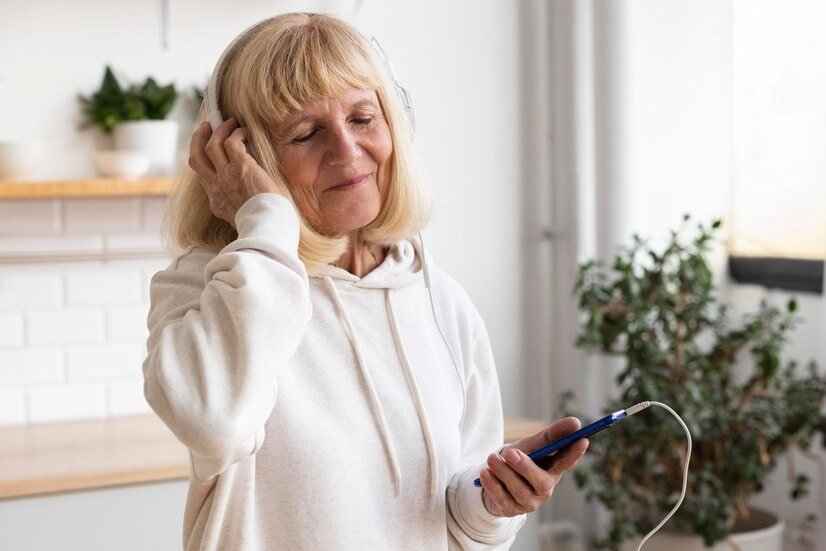Dealing with Post Menopausal Hair Loss: Causes and Solutions
Hair loss can affect anyone of any gender - for women, post-menopausal hair loss is a common issue that affects many women around the world after menopause. This health condition is known as female pattern hair loss or androgenetic alopecia, and it can be emotionally distressing for those who experience it.
If you or someone you know is experiencing this kind of hair loss, we encourage you to keep reading to learn more about the reasons and treatments for this condition.
The Causes Of This Hair Loss
Many factors affect this type of hair loss, which can determine the condition's intensity:
Hormonal Changes. Hormone changes can affect hair loss, particularly after menopause. After menopause, a woman's hormone levels undergo significant changes, which can cause side effects. Estrogen levels decrease, while androgen levels might remain relatively stable. This change can disrupt the hair growth cycle, producing thinner, shorter hair as well as slower hair growth and increased hair shedding.
Genetic Predisposition. Post-menopausal hair loss often has a genetic component, meaning it tends to run in families. Women with a family history of hair loss are more likely to experience it themselves.
Lifestyle And Health Factors. Other than things we cannot control, such as menopause, genetic disposition and age, there are factors that we can control that can negatively affect our hair. Overwhelming stress, nutritional deficiencies, medical conditions, medication side effects and lifestyle habits can all contribute to the effects of post-menopausal hair loss.
Solutions For Post-Menopausal Hair Loss
Fortunately, some treatments can suppress the effects of hair loss. These medically-based treatments have proven effective for many people suffering from hair loss. However, even though these treatments have proven to be viable solutions for many, it's very important that you keep a positive yet realistic mindset. There is no guarantee that any one solution will work, so clients and doctors need to explore options while being open to the idea that there's a chance certain treatments won't work.
A few hair loss treatments that you could explore are:
Platelet-Rich Plasma Therapy. Platelet-rich plasma, often shortened to PRP, harnesses the body's natural healing ability by utilising the patient's own blood and platelets. During this procedure, a small sample of blood is taken and then processed to isolate the platelet-rich plasma. This is then injected into the patient's scalp to promote hair health and growth.
PRP is a safe and effective solution for those experiencing post-menopausal hair loss and is a relatively straightforward procedure that doesn't require invasive techniques.
Polydioxanone Thread Insertion. Polydioxanone thread insertion, or PDO thread insertion, provides structural support to the scalp and hair follicles. These threads are fine, absorbable threads that are inserted into the patient's scalp to stimulate collagen production and improve blood circulation. This treatment can result in thicker, stronger hair growth.
Combining PRP And PDO Thread Insertion. Both of the above-listed treatments can be used in tandem to offer a solution to post-menopausal hair loss. PRP therapy will stimulate hair follicle activity, and PDO threads can provide structural support and enhance the effects of PRP therapy.
Both of these treatments are considered safe with minimal downtime, so they're a viable choice for most women going through this kind of hair loss. Because they're minimally invasive, women who undergo these treatments can continue their lives without too much discomfort or frustrating side effects.
Lifestyle Choices And Health Management. Aside from these treatments, it's very important to look at ways you can naturally improve hair health. While lifestyle changes can be difficult, they can contribute to healthier hair and overall life.
A few things you can look into with your healthcare professional are:
Reducing Stress. Reducing stress is certainly easier said than done, but it can enhance your mental health and your physical health - including your hair health. Consider ways in which you can reduce stressors in your life or ways in which you can healthily handle stress.
Eat Healthy. Your diet has a significant effect on your overall health. Be sure you make healthy diet choices, giving your body the right nutrients it needs to thrive.
Stay Hydrated. Speak to your doctor about the amount of water you should be drinking every day. Try to stay hydrated and avoid unhealthy choices like soda and sugary juice.
Treating Hair Loss, Restoring Confidence And Boosting Happiness With Hair Loss Treatments
If you or someone you love is undergoing hair loss and wants to address it, we encourage you to call us at The Hair Clinic. We approach hair regrowth from a medical standpoint, ensuring our valued clients get the support and treatment they deserve. For details, please visit our page on post-menopausal hair loss.
You can also take our convenient online test to easily tell us more about what you're experiencing. This test is completely obligation free and confidential, so you don't have to stress about committing to any treatments when you fill it out.
For assistance, please feel free to call us on (09) 523 5999.
The Hair Clinic: We understand how distressing hair loss can be, and we're committed to helping you in any way we can.

